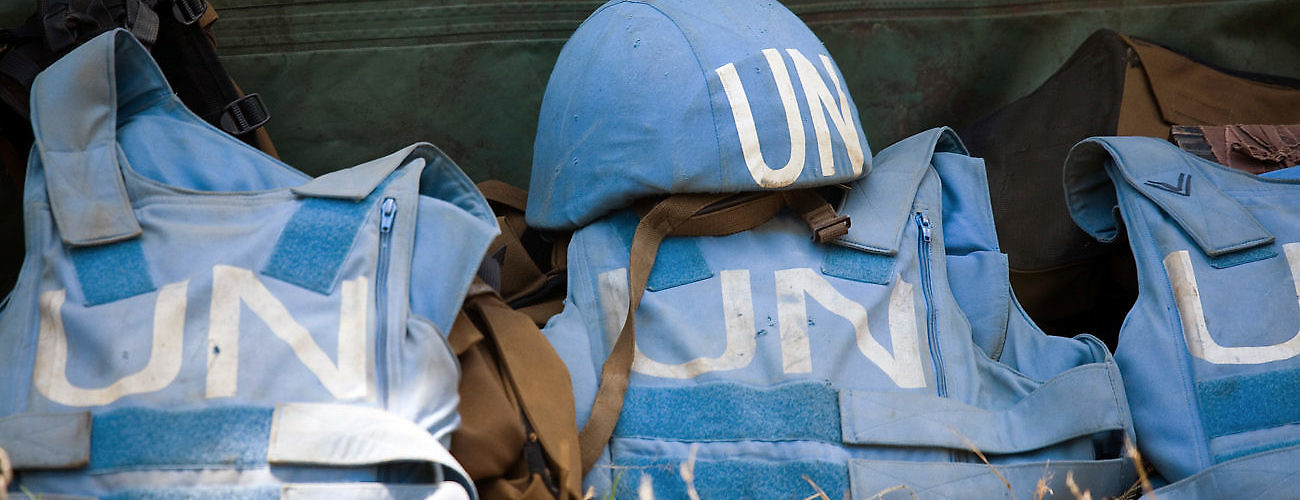Helmet and flack jackets of the members of the 1 parachute battalion of the South African contingent of the United Nations Peacekeeping Mission in the Democratic Republic of the Congo (MONUC). (UN Photo/Marie Frechon)
It is commonly assumed that the main threats to uniformed peacekeepers originate from outside of peacekeeping missions. However, many women (and some men) deployed as military or police peacekeepers are subjected to sexual abuse by other members of the organizations they serve. Until now, there has been little research specifically focused on this sexual abuse by uniformed peacekeepers against their peacekeeping colleagues.
This paper helps fill that gap, drawing on a survey of peacekeepers as well as data from interviews and a closed-door workshop. It presents findings related to the extent, frequency, and type of abuse peacekeepers have experienced and witnessed; the perpetrators of this abuse; the organizational cultures that enable it; and peacekeepers’ perceptions of the UN’s response. These findings reveal that while sexual abuse is a major threat to uniformed peacekeepers, especially women, the UN and troop- and police-contributing countries (T/PCCs) have not adequately responded to the issue. This lack of attention is in contrast to the relatively robust architecture for reporting on and investigating sexual exploitation and abuse of host communities in peacekeeping environments.
To successfully prevent and respond to sexual abuse within peacekeeping missions as well as increase women’s meaningful participation in peace operations, the report concludes by providing several recommendations across four broad areas for the UN and T/PCCs:
- Transform the organizational cultures that enable sexual abuse of peacekeepers;
- Mandate robust training to prevent sexual abuse of peacekeepers;
- Require T/PCCs to address sexual abuse of peacekeepers within their contingents; and
- Create a robust, confidential, and victim-centric reporting and investigation infrastructure.








